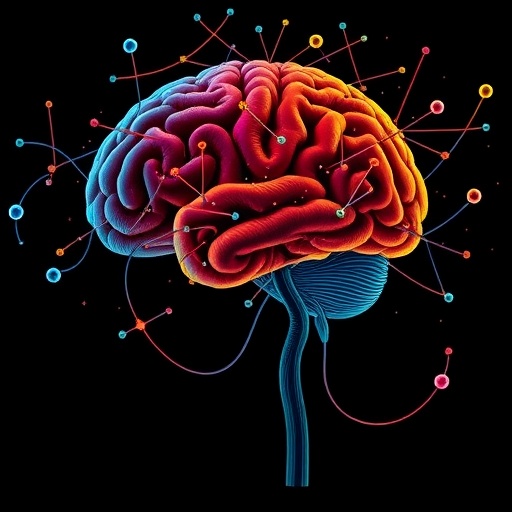In an era where the global population is aging rapidly, understanding the factors that contribute to cognitive decline has never been more critical. Recent groundbreaking research published in BMC Psychiatry sheds light on a lesser-explored yet potentially pivotal psychological mechanism: repetitive negative thinking (RNT). This study reveals a compelling association between persistent negative thought patterns and deteriorating cognitive function in older adults, potentially redefining how we approach mental health and cognitive aging.
The concept of repetitive negative thinking, characterized by persistent and recurrent focus on distressing or worrisome content, has gained traction as a core feature of various psychological disorders, including anxiety and depression. However, its direct impact on cognitive function, especially in aging populations, has historically been understudied. This new cross-sectional study, conducted between May and November 2023, utilized robust psychometric tools to quantify RNT and cognitive performance in a substantial cohort of community-dwelling older adults aged 60 years and above.
Deploying the Perseverative Thinking Questionnaire (PTQ), researchers meticulously assessed the intensity and frequency of RNT symptoms among 424 participants. Cognitive ability was concurrently evaluated using the Montreal Cognitive Assessment (MoCA), a widely respected clinical instrument for detecting cognitive impairment. What emerges from the data is a striking inverse relationship: higher levels of repetitive negative thinking correlate significantly with diminished cognitive performance, even after adjusting for confounding variables such as age, education, and other demographic factors.
Delving deeper into the statistical modeling, researchers divided the participants’ RNT scores into quartiles. Those falling into the upper two quartiles (Q3 and Q4) exhibited markedly lower cognitive scores compared to participants in the lowest quartile (Q1). Quantitatively, these reductions were robust, with beta coefficients signaling clinically meaningful declines in cognitive assessment outcomes. This points to the unique and independent role that persistent negative cognition might play alongside established risk factors for cognitive decline.
Intriguingly, subgroup analyses revealed nuances in vulnerability. Older adults aged between 60 and 79, particularly those with education levels above junior high school, manifested stronger associations between elevated RNT and cognitive impairment. This suggests that while RNT universally influences cognitive health, its detrimental effects may be more pronounced in relatively younger segments of the elderly population who have attained higher educational status, possibly due to their baseline cognitive reserve masking early symptoms until compounded by psychological stress.
The biological underpinnings linking RNT to cognitive decline can be hypothesized through the lens of neuropsychological stress theories. Chronic engagement in negative repetitive thought may lead to dysregulation of the hypothalamic-pituitary-adrenal (HPA) axis, elevating cortisol levels and provoking neuroinflammatory responses. Such physiological stress can, over time, exert neurotoxic effects on brain structures critical for memory, attention, and executive function, notably the hippocampus and prefrontal cortex. Thus, RNT embodies not only a marker but also a potential causal mechanism accelerating neurodegenerative processes.
From a clinical standpoint, the implications are profound. Repetitive negative thinking, being modifiable through psychotherapeutic interventions such as cognitive-behavioral therapy (CBT), mindfulness training, and acceptance-based approaches, could become a targeted focal point to delay or prevent cognitive decline. By identifying individuals with heightened RNT early, healthcare providers might intervene proactively, offering mental health therapies that simultaneously preserve cognitive integrity.
Moreover, the study’s hospital-based setting, while ensuring rigorous participant evaluation, also hints at the opportunity for integration of RNT assessments into routine geriatric care. Cognitive screenings traditionally prioritize memory and functional complaints; however, the inclusion of validated measures for repetitive negative thinking could enhance diagnostic accuracy and enable holistic treatment strategies addressing both mental health and cognitive preservation.
Despite the compelling findings, the authors acknowledge inherent limitations of cross-sectional designs which preclude establishing causality. Longitudinal, multi-center cohort studies are urgently needed to unravel temporal dynamics and confirm whether interventions that reduce RNT can demonstrably sustain or improve cognitive outcomes over time. Such investigations would further elucidate whether RNT is a driving force or an epiphenomenon of cognitive decline.
Furthermore, future research may benefit from incorporating neuroimaging and biomarker assessments to directly measure the neurobiological correlates of RNT-related cognitive changes. Identifying specific brain circuits or inflammatory markers involved in this relationship could fuel the development of pharmacological as well as psychological interventions, paving the way for personalized medicine approaches in geriatric mental health.
The emerging narrative situates repetitive negative thinking not merely as a psychological symptom but as an influential factor that cascades into tangible cognitive deficits. In a society where mental well-being is increasingly recognized as integral to healthy aging, this research underscores the necessity of addressing negative thought cycles early and aggressively.
Additionally, these findings resonate with broader public health goals. Given the burgeoning rates of dementia and mild cognitive impairment globally, mitigating modifiable risk processes such as RNT represents a viable strategy to curb the societal and economic burdens of cognitive disorders. Awareness campaigns and therapeutic innovations targeting mental ruminations could supplement existing recommendations emphasizing physical health and cognitive training.
In summary, this pioneering study from Ye et al. offers a clarion call to shift paradigms in geriatric mental health research and clinical practice. It shines a spotlight on repetitive negative thinking as a critical, actionable factor in cognitive decline, inviting the field to explore integrated interventions that protect the aging mind. As science inches closer to untangling the complex web of cognition and emotion, such insights promise to enhance quality of life for millions navigating the challenges of aging.
Subject of Research: The association between repetitive negative thinking (RNT) and cognitive function decline in older adults.
Article Title: Repetitive negative thinking is associated with cognitive function decline in older adults: a cross-sectional study.
Article References:
Ye, N., Peng, L., Deng, B. et al. Repetitive negative thinking is associated with cognitive function decline in older adults: a cross-sectional study. BMC Psychiatry 25, 562 (2025). https://doi.org/10.1186/s12888-025-06815-2
Image Credits: AI Generated




